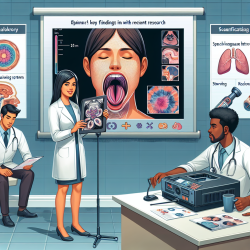In a rapidly evolving world, the integration of technology in therapeutic practices is not just an innovation but a necessity. TinyEYE, a pioneer in online therapy services for schools, continuously seeks ways to improve and optimize its offerings. Drawing from the research article "Examining how organizational leaders perceive internet-delivered cognitive behavioural therapy for public safety personnel using the RE-AIM implementation framework," we can derive valuable insights to enhance our services.
Understanding the RE-AIM Framework
The RE-AIM framework, which stands for Reach, Effectiveness, Adoption, Implementation, and Maintenance, provides a comprehensive approach to evaluating health interventions. By applying this framework, we can systematically assess and improve our online therapy services for children in schools.
Key Insights from the Research
The study highlighted several key areas that can be adapted to our context:
- Reach: Ensuring that our services are accessible to all children who need them, regardless of geographical or socio-economic barriers.
- Effectiveness: Continuously monitoring and evaluating the outcomes of our therapy sessions to ensure they meet the desired mental health improvements for children.
- Adoption: Encouraging schools to adopt our services by demonstrating their benefits through data and success stories.
- Implementation: Ensuring that our services are seamlessly integrated into the school environment and that therapists are well-trained and supported.
- Maintenance: Developing strategies to sustain the long-term use of our services in schools, ensuring ongoing support and updates.
Practical Steps for Practitioners
Based on the research findings, here are practical steps practitioners can take to improve their skills and enhance therapy outcomes:
- Build Trust and Relationships: Just as PSP leaders emphasized the importance of trust, school therapists should focus on building strong, trusting relationships with students, parents, and school staff.
- Tailor Interventions: Customize therapy sessions to address the unique needs of each child, incorporating feedback from students and parents to improve engagement and effectiveness.
- Promote Awareness: Increase awareness about the benefits of online therapy among school communities through workshops, newsletters, and success stories.
- Monitor and Evaluate: Regularly assess the impact of therapy sessions using data-driven methods to ensure they are meeting the desired outcomes and making necessary adjustments.
- Provide Continuous Training: Ensure that therapists receive ongoing training and support to stay updated with the latest therapeutic techniques and technologies.
Encouraging Further Research
While the insights from the RE-AIM framework are invaluable, it is essential for practitioners to remain curious and engaged in ongoing research. By staying informed about the latest studies and developments in the field, therapists can continuously refine their practices and contribute to the advancement of online therapy.
To read the original research paper, please follow this link: Examining how organizational leaders perceive internet-delivered cognitive behavioural therapy for public safety personnel using the RE-AIM implementation framework.










